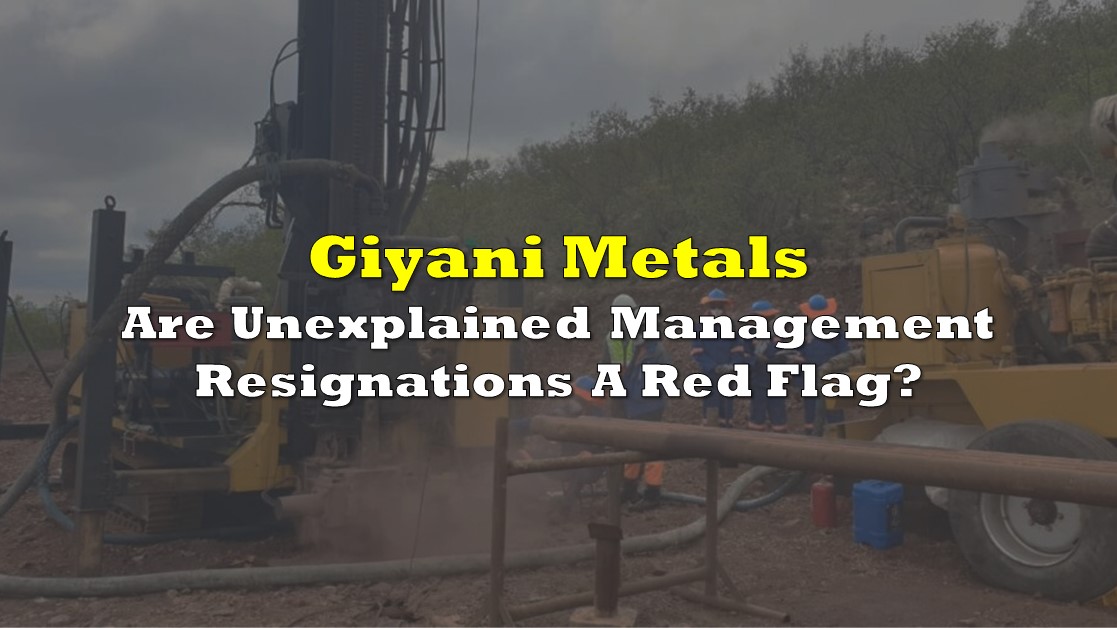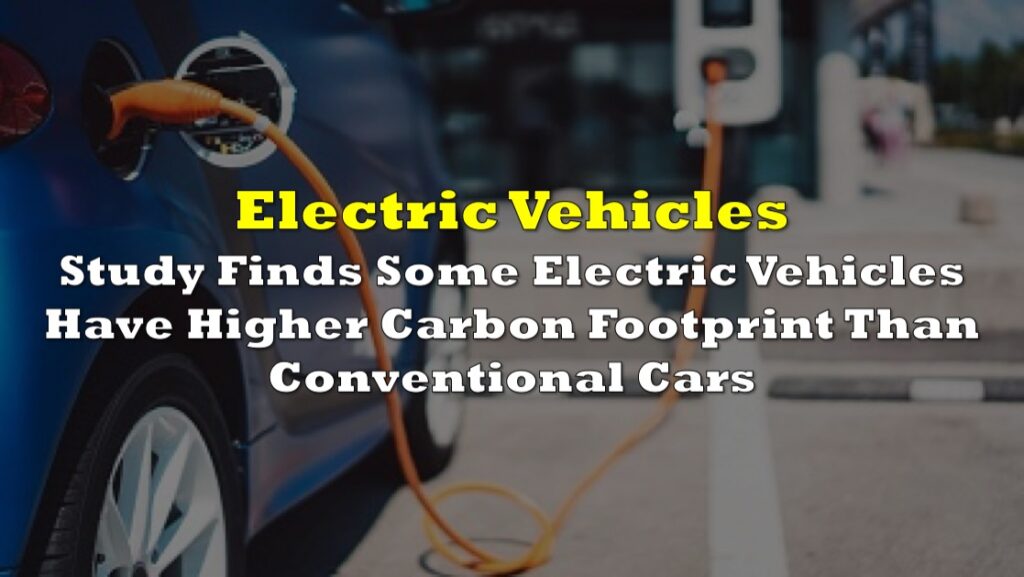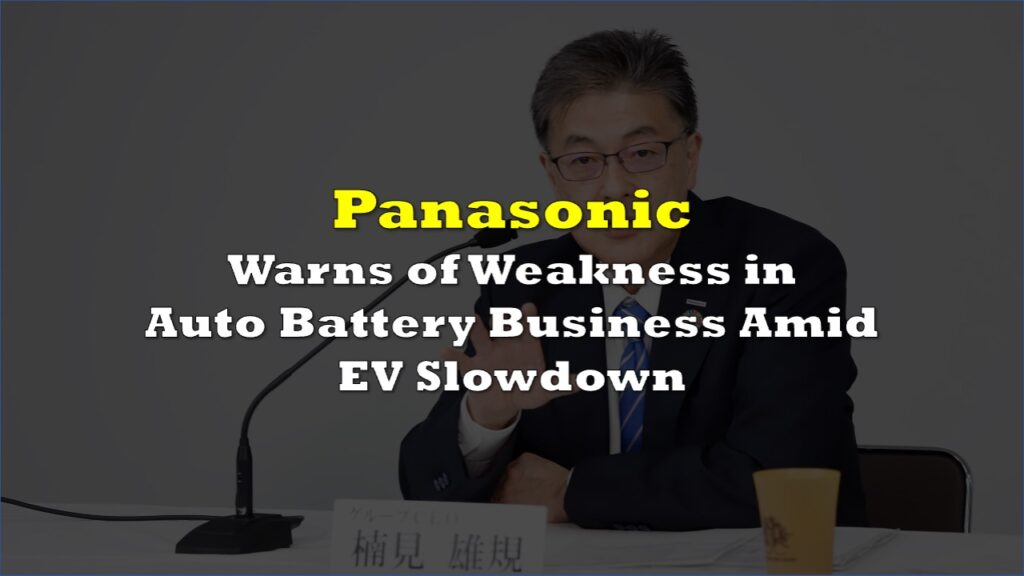Two of the four top executives at Giyani Metals Corp. (TSXV: EMM), a developer of manganese projects in Botswana, Africa, have resigned in recent days. First, CFO Aamer Siddiqui resigned on November 17, “to pursue other business opportunities.” Four days later, President Wajd Boubou, a 3 ½-year veteran of the company, also decided to resign for the same reason according to Giyani.
Siddiqi has seven years of experience providing financial and advisory services to a wide range of clients. Prior to joining Giyani, Boubou was a Cisco Systems executive for nearly ten years. Replacements for both Siddiqui (Omar Gonzalez) and Boubou (Derk Hartman) have already been named, however Hartman will not formally be taking the role until March 1, 2021.
It is of course possible that both executives independently decided to resign for personal reasons or that unresolvable personality conflicts existed at the top tier of the company, but these resignations in such close succession make it difficult to not view it as a “red flag” for Giyani.
Tesla’s Battery Day Helped a Number of Metals Which Have Application in EV Batteries
After Tesla held its Battery Day in mid-September, in which the company discussed the need for metals like lithium, nickel and manganese in electric vehicle (EV) batteries, stocks of many miners and prospective miners of those metals rose, including Giyani. Specifically with respect to manganese, Tesla said that it expects that battery cathodes for its intermediate range vehicles and non-industrial stationary storage units will contain one-third manganese. Giyani shares were trading at around C$0.13 per share before Tesla’s announcements; since then, they have generally traded in the C$0.20-C$0.24 range.
Giyani’s K.Hill Project
Giyani’s flagship asset is the K.Hill manganese project, a near-surface manganese oxide deposit. A feasibility study on K.Hill is expected to be completed in the first half of 2021. Giyani released an updated preliminary economic assessment (PEA) on the project in April 2020, which concluded that K.Hill has an after-tax net present value (NPV) of C$389 million and an after-tax internal rate of return (IRR) of 82%. The life of the mine is expected to be ten years, and the estimated capital expenditures are modest, at only C$155 million.
About 86% of all manganese mined globally is used in steel production. An alloying element in the process, manganese removes oxygen and sulfur when iron ore is converted into iron. In EV battery applications, manganese is prized for its ability to hold and discharge electrons. Perhaps more important, manganese is markedly cheaper than cobalt, which also is used in battery cathode compositions. To reinforce this notion, Tesla is reportedly close to announcing that it plans to adopt an NCM (nickel, cobalt, manganese) battery in its Model Y SUV that will be built in Shanghai, China.
Operating Cash Flow Deficit Has Widened in 2020
Giyani Metals is a pre-revenue company. Operating cash flow deficits have increased throughout 2020. To fund these deficits, together with $500,000 of capital expenditures in the first nine months of 2020, the company issued about 27 million new common shares (a 32% increase) in 2Q and 3Q combined.
| (in thousands of Canadian dollars, except for shares outstanding) | 3Q 2020 | 2Q 2020 | 1Q 2020 | 4Q 2019 | 3Q 2019 |
| Operating Income | ($673) | ($277) | ($242) | ($547) | ($339) |
| Operating Cash Flow | ($640) | ($391) | ($277) | ($122) | $143 |
| Cash | $597 | $228 | $4 | $9 | $199 |
| Debt – Period End | $0 | $0 | $0 | $0 | $0 |
| Shares Outstanding (Millions) | 112.4 | 102.3 | 85.4 | 85.4 | 85.0 |
Giyani Metals shares could of course continue to perform well, as investor interest in all aspects of the EV industry remains strong, particularly in battery metals. Furthermore, the K.Hill property, while located in distant Botswana, has good economic characteristics and relatively low capital expenditure requirements.
Conclusion
Giyani Metals seems to have a solid manganese project in Africa, and demand for manganese promises to grow significantly over the intermediate to long term. However, two recent and unexplained management resignations introduce substantial uncertainty to the story.
It is possible that the management changes can be easily explained, however given the timing that is questionable. In addition, manganese production at the K.Hill project is unlikely to begin for some time (even under ideal conditions), making revenues for the company essentially out of the question.
Giyani Metals last traded at $0.25 on the TSX Venture Exchange.
Information for this briefing was found via Sedar and the companies mentioned. The author has no securities or affiliations related to this organization. Not a recommendation to buy or sell. Always do additional research and consult a professional before purchasing a security. The author holds no licenses.











